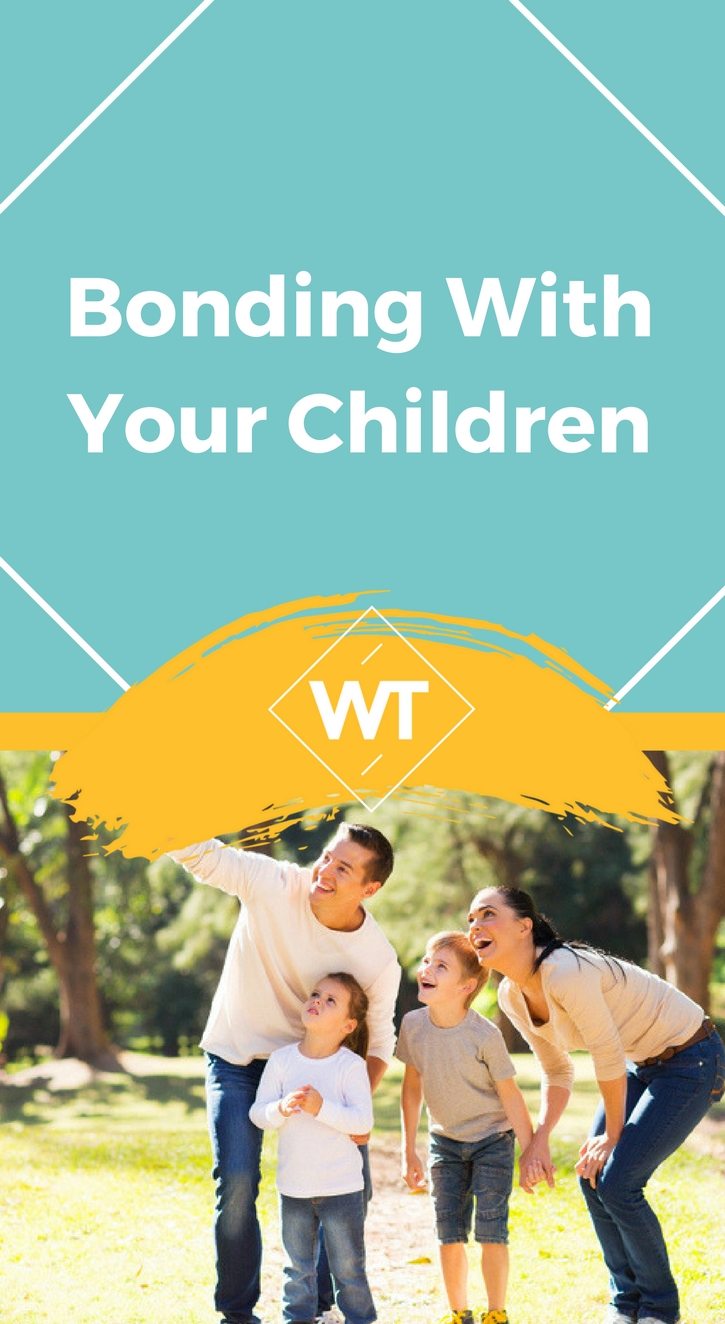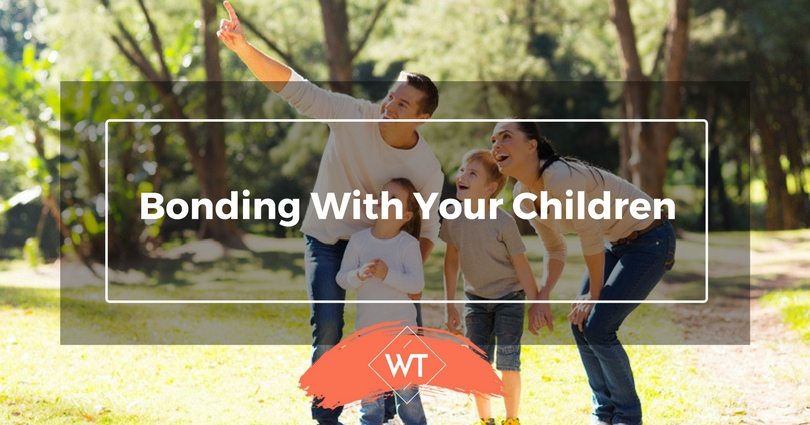Bonding with your Children

Modern life has led to nuclear families—very often a person has had no contacts with his or her parents for years and many don’t even know whether they are dead or alive. It’s a sad truth of life as we know it today. In many eastern cultures however the scenario is different and many generations live in close proximity and share both laughter and tears.
It’s love and a deep emotional bond that makes people care about one another. Sometimes bonds are so deep that even miles away one can feel the agony felt by another. When parents weave unbreakable bonds with their children they are actually laying the foundation of a lifelong relationship—one of caring.
For a mother bonding begins in the womb while a father begins his journey of love/caring from the moment he holds the baby in his hands and the baby looks up at him with trust. It is about trust, security, and love.
Love, but don’t Strangle
Loving and caring . . . bonding should be subtle and never strangle. As parents it is important to know when to step aside. Too much love can smother and crush the individuality of a child. Learn when to advise, when to say “ No” and when to pamper.
As a mother I have always been terrified of motor bikes, my over active imagination would send shivers of fear. When my son—all grown up—wanted a bike because it was fuel-efficient my first reaction (along with that of my sister) was “No. Drive the car. We will pay for the fuel.”
My son explained that first and foremost he was all grown up—an adult. And second, if something were to happen to him it could happen even if he was just standing inside the house.
I realized that I was treating him like a toddler and was not respecting that he was adult. The protective mantle needs to be selective at all times.
According to experts, signs of healthy bonding are:
- You and the child have mutual respect for one another.
- The child grows up to be self-confident and independent—makes decisions.
- It’s a strong, give and take relationship. In case of need your child is the first to put their around around your shoulder—like you did when the child was young.
Build a lifelong Relationship
When the child is a baby, signs of love and trust can be seen in its smile, on how it nuzzles to you when you hold it in your arms. As a child grows the bonds deepen. Teach your child about trust, honesty, and caring. Children are parrots. They learn and absorb from what they see around them. The child will follow your example, so make it a good one by caring for your parents .
Spend time with the child. Play, talk to the child, and learn all about them. When a child returns home from school or play, you will find that they will run towards you knowing that your arms are waiting to envelop them in warmth and comfort.
As a child grows the equation will shift. You will be the one on the receiving end of love and care. Accept the change graciously—let the child slowly shoulder the responsibility of making decisions big and small and caring for you.
Teach but avoid strangling: Love is good, but overpowering protection can break a relationship. Be a parent who holds the reins loosely.
Let the child find their feet: Nurture individuality and a strong independent spirit. The child as it grows should be able to believe that you will stand solidly by him/her even if you don’t agree with choices the child makes.
Work towards bonding: Instill respect (not fear) and everlasting trust.
Be Attuned: Hone the art of listening. Be tuned to the child’s every nuance. Know that something is amiss even before it blows out of proportion and hold the child’s hand mentally and physically through the tough times.
Reap what you Sow
Building bonds that run deep will ensure that someone will hear your call even from overseas. A child will take care of their parents even over long distances and come running when a need arises.
Both the parent and the child will be so deeply connected that the bonds will last through the trails of time. Love deeply, earn and give respect and you will reap the rewards of caring intelligently ten-fold.









Leave a Reply